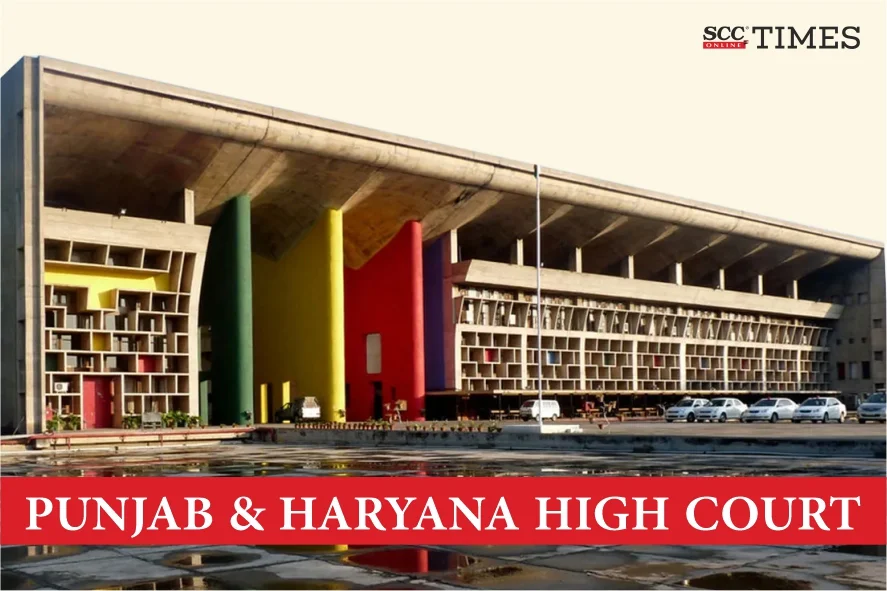Punjab and Haryana High Court: In a writ petition filed by a Civil Judge against his dismissal from service upon completion of his probation, the Division Bench of Sheel Nagu*, CJ., and Sumeet Goel, J., rejected the petition, holding that the concept of deemed would not apply to the present case since it would create an anomalous situation where the probationer despite being unfit for confirmation, would be deemed confirmed, bringing into the service a Judge of doubtful integrity whose service record was tainted with adverse remarks.
Background
In 2008, the petitioner was appointed as a Civil Judge (Junior Division) in the Haryana Civil Services (Judicial Branch) on two years’ probation. The assessment and review of the petitioner’s work and conduct during his probation was put up before the Administrative Judge and thereafter before the Administrative Committee (‘the Committee’) concerned for confirmation. However, the petitioner’s case was deferred till the finalisation of certain complaints received against him.
The Committee took up the matter of the petitioner for confirmation and recommended an extension of his probation for six months considering the remarks “below average (integrity doubtful)” recorded in his column of the Annual Confidential Report for 2010-11. This recommendation of the Committee was affirmed by the Full Court.
Thereafter, an anonymous complaint was received from the Bar Association, which was placed before the Committee. The Committee recommended that keeping in view the work, conduct, and overall service record of the petitioner, his services shall be dispensed with during probation. This recommendation was accepted by the Full Court. Accordingly, the Government of Haryana passed the order of discharge of the petitioner from probationary services.
Aggrieved, the petitioner filed the present petition.
Analysis
The Court rejected the contention that after the completion of a three-year-long probation period, the petitioner ought to have been confirmed. The Court stated that the concept of deemed confirmation was anarchy, which had been given up a long time ago in the service jurisprudence. Furthermore, the proviso of Rule 7.3 of the Punjab Civil Services (Judicial Branch) Rules, 1951 (‘the Rules’) clearly stipulates that mere completion of a maximum period of three years’ probation would not confer on the probationers the right to be confirmed till there is a permanent vacancy in the cadre.
The Court noted that a close scrutiny of Rule 7.3 revealed that on completion of the period of probation, the Governor of Haryana may, on the recommendation of the High Court, either confirm the probation if the probationer was working against the permanent vacancy or if his work and conduct was not satisfactory, dispense with the services or extend his period of probation beyond the expiry of the period of probation.
Noting that the confirmation was not only subject to the availability of vacancy but also to all important attending aspects of the probationer’s conduct and work being satisfactory, the Court remarked that these elements were absent in the present case. The Court noted that the petitioner received adverse remarks and was awarded ‘B satisfactory’ for one year, integrity was doubtful for the next year, and ‘B Average’ for the third year, thereby extending liberty to the employer to dispense with his probationary service in terms of the said Rule. Moreover, the Court noted that there was no mala fide alleged against any particular authority while laying a challenge to the order of discharge.
The Court stated that the concept of probation is to enable the employer to analyse the work, conduct, and behaviour of the appointee during the period of probation to conclude whether the probationer is suitable to be continued by confirmation in service. This power cannot be taken away from the employer on the anvil of the concept of deemed confirmation. Deemed confirmation is a perilous concept in service jurisprudence that has long been discarded since it erodes into the power of the employer to assess the work, conduct, and behaviour of the probationer.
The Court added that there may be occasions where the employer, being unable to decide on the question of confirmation, extends the period of probation for another year to give some more time to the probationer to render services, thereby giving him further opportunity to improve his lackluster performance. This effort of the employer to afford further opportunity to a probationer may lead to crossing the maximum period of probation prescribed in the Rules.
The Court stated that if deemed confirmation was brought into play, notwithstanding the adverse remarks given to the petitioner, based on his below-average performance, conduct, and behaviour, then an anomalous situation would arise wherein the probationer despite being unfit for confirmation, would be deemed confirmed thereby bringing into the service a Judge of doubtful integrity, whose service record was tainted with adverse remarks. This would be deleterious to the very concept of probity on which the entire judicial system stands.
Given the above discussion, the Court held that the concept of deemed confirmation could not be applied to the present case.
Accordingly, the Court rejected the petition, holding that there was no illegality in the impugned order of discharge of the petitioner from probationary service.
[Ankur Lal v. Punjab and Haryana High Court, 2025 SCC OnLine P&H 2578, decided on 29-05-2025]
*Judgment authored by: Chief Justice Sheel Nagu
Advocates who appeared in this case:
For the petitioner: Sunil Kumar Nehra, Rahil Mahajan, Akash Gahlawat, Viren Nehra, and Arjun Dosanj
For the respondent: Senior Advocate Sanjeev Sharma, KDS Hooda, and Addl. Advocate General of Haryana Deepak Balyan


